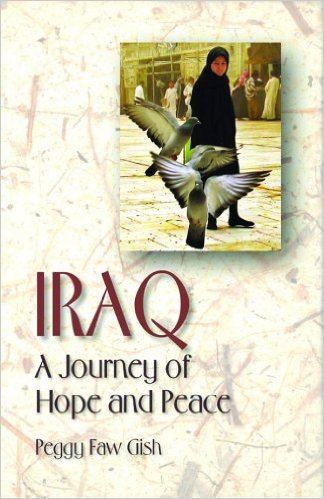Book Review: ‘IraqiGirl’ Hadiya’s a poet and blogger, but
what this book reveals is that she isn’t a “normal” girl. By Erik Leaver.
Edited by Jennifer Doak, September 23, 2009. iraqi girlAfter
nearly seven years of ongoing war and occupation, many in the United States are
resigned to wait for December 2011—the promised date for final withdrawal of
U.S. troops from Iraqi soil. But in Iraq, the war and occupation remain central
to the lives of Iraqis where they are living with feeble security; a lack of
basic services including electricity, water, and sanitary services; inadequate
access to health care; and, a devastated economy. It’s been easier for
Americans to ignore the Iraq War as headlines have faded as the war in
Afghanistan becomes more prominent. They include discussions of weeklong curfews, closure of
schools, relatives that have been killed, and stories of those who families
were forced to flee. While Americans discuss troop levels, battlefield tactics,
and casualty rates, the stories from Iraq are much different.
 |
Book Review: Iraqi Girl |
Americans have received fleeting glimpses of what Iraq
really looks like over the years from the mainstream media. Their work caused
rise to a new genre of book—compilations of blog posts. Baghdad Burning by
Riverbend and Iraq War Blog stand out as those that should be required reading
for anyone studying the war.But far more powerful stories have been told by
those Iraqis still on the ground. As the war and occupation began, a crop of
Iraqi bloggers took the stage to stand as public witnesses to the ravages of
war.
A new book now joins that list of must-reads, IraqiGirl.
This compilation of blog posts stands out from the rest because of the age of
the writer. Hadiya published her first post on July 29, 2004 at the age of 15. Hadiya
writes, “At the beginning of the war, when we heard an explosion we called all
the family to make sure that they are fine. But now because the explosions
don’t stop all day, we stopped calling each other.” Her writing focuses far
more on her family and school than on the politics and battlefield that
consumed the writing of Riverbend and others. On one hand, it makes the book
less useful for scholars of the war but on the other, it is an essential tool
for activists and those teaching younger generations in the United States and
around the world about what it’s like to live with war surrounding you. The
daily trauma of war is illuminated in nearly every blog post.
As the war goes on, the writing and story lines remain a
constant. Hadiya worries about school, her family, and her friends. One keeps
reading hoping to see a change on the ground. But one of Hadiya’s most
oft-repeated phrases of the book is that “things are getting worse.” Indeed,
even in her final few posts in November 2007, she writes After all, President
George W. Bush repeatedly assured the American public that we were
“succeeding”., “The basic fact is that we are still insecure and in danger even
when we are in our own homes.”
Born in 1989, she has lived almost her entire life under war
or occupation, as the Gulf War started in 1991. She puts the basics that many
take for granted into perspective. Hadiya doesn’t write about hope in her
posts, but she continually displays it. Her dedication to her schooling (now
age 20, she is enrolled in pharmacy school at the University of Mosul) and in
her continued posts (since the publication of the book, she has continued her
blog) are strong indicators that she, like most Iraqis, believes that the
future will be better. “When I was a little girl, I once asked my mother if
there is any country where there is electricity all day? I couldn’t imagine
that! How could they have electricity all the time when we only had four to
seven hours of it? And many days, we didn’t have any electricity at all.”
The Iraqi people should have hope. The occupation is
starting to wind down, development of oil production provides possibilities for
reconstruction of the country, and Iraq has a rich history to draw upon. Reading
IraqiGirl reminds one of the great obligations the U.S. has to the Iraqi people
as it starts to withdraw. The brave children who have grown up in a war zone,
such as Hadiya, are owed the most. But while there is hope, peril also looms
closely. Political reconciliation is desperately needed, economic development
is lagging, and many complex political questions remain unresolved.


